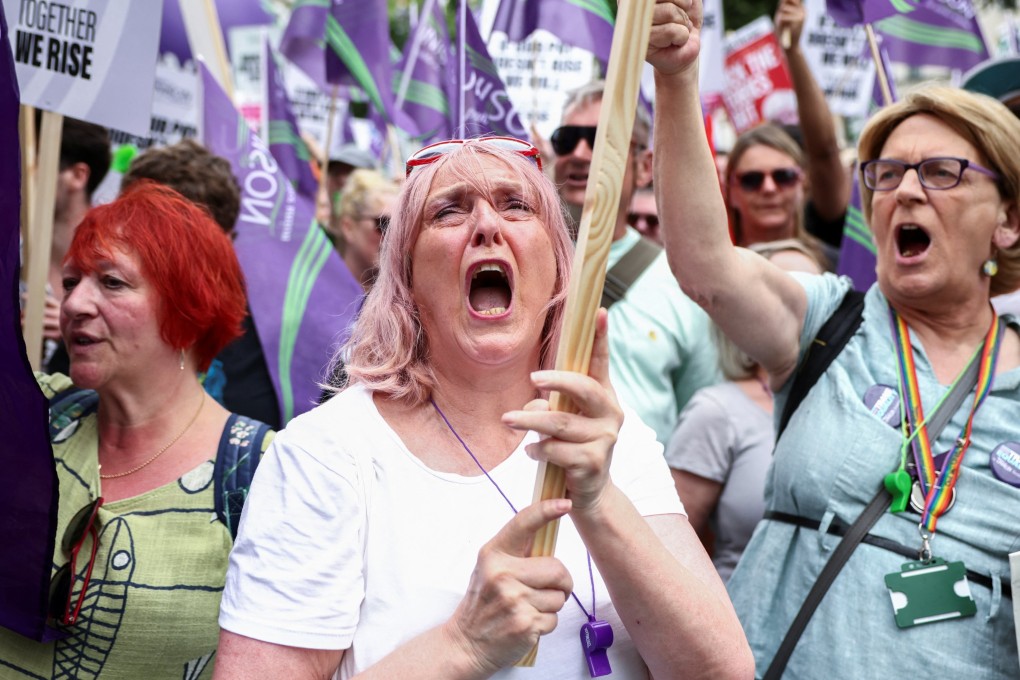UK in ‘summer of discontent’ as cost of living, worker anger soar
- Workers in the UK are striking over pay and conditions as surging inflation bites
- PM Boris Johnson said pay increases would lock country into an inflationary spiral

Rail workers are fed up, so are postal workers. Even barristers and doctors are complaining about their salaries. As the UK’s cost of living crisis grows, so has anger among workers across the economy who are demanding better pay and conditions.
The UK media has dubbed the current period the “summer of discontent”, harking back to the “winter of discontent” in the late 1970s when strikes brought the UK government and country virtually to its knees.
Today, unions are ramping up industrial action pressure on the Boris Johnson government, which is struggling to keep sky-high energy prices in check, as well as the cost of food and other basic goods.
The UK’s inflation rate hit 9.1 per cent in May – its highest in 40 years. UK economic growth is close to zero, and trade with Europe following Brexit has plummeted. Labour shortages have not pushed up wages for the public sector, just created more work for employees.
All this comes on top of years of austerity, including job cuts, outsourcing and public pay freezes.
Last month, Britain’s rail network was brought to a near standstill by its biggest strike in three decades. The RMT transport union demanded a 7 per cent pay rise, but was offered 3 per cent. Further disruption on the railways was expected.